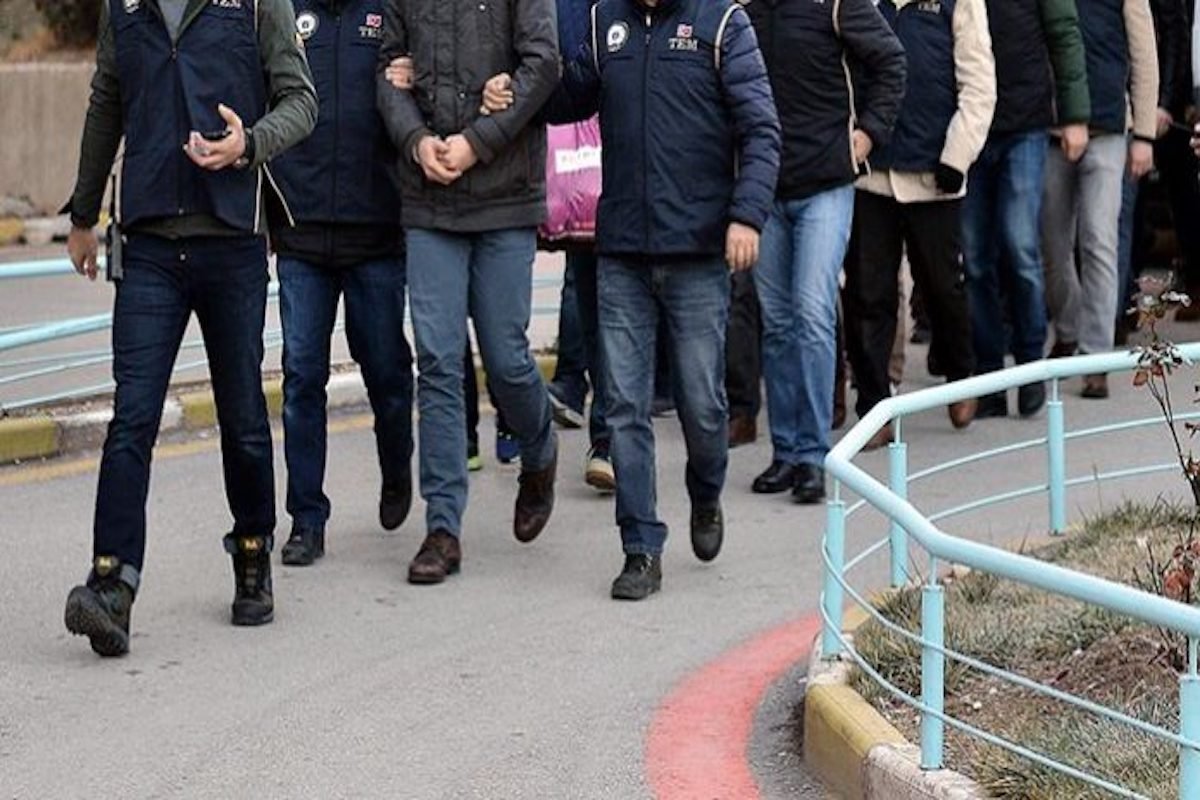The Turkish government detained at least 111 people on Thursday across Turkey as part of its massive post-coup witch hunt targeting alleged members of the Gülen movement.
In central Konya province, police detained 40 people, including active duty military officers, as part of an investigation carried out by the province’s chief public prosecutor’s office into alleged members of the Gülen movement..
Additionally, 14 more people, including active duty soldiers, were arrested in eight provinces as part of a separate probe conducted by the same prosecutor’s office.
In southern Hatay province, police on Thursday detained 12 people over alleged links to the Gülen movement. Some of the detainees were claimed to have used the ByLock mobile phone messaging application.
Turkish authorities believe ByLock is a communication tool among alleged followers of the Gülen movement. Tens of thousands of people, including civil servants, police officers, soldiers, businessmen and even housewives, have either been dismissed or arrested for supposedly using ByLock since a controversial coup attempt on July 15, 2016.
Also, in the Black Sea province of Trabzon four people were detained in simultaneous raids for allegedly using the ByLock application.
On Thursday in central Niide province, police held two people for allegedly using ByLock, while two others were detained in central Eskişehir province over their alleged links to the Gülen movement.
Another 12 people, including doctors, teachers and students, were detained in an eastern Elaziğ-based probe that was carried out across five provinces on Thursday.
In Mediterranean Antalya and northwestern Kocaeli provinces, police detained nine people in each province over their alleged links to the Gülen movement.
In northern Tokat province, seven people, including judges and prosecutors, were detained on Thursday as part of an investigation into alleged members of the movement.
Turkey survived a controversial military coup attempt on July 15, 2016 that killed 249 people. Immediately after the putsch, the Justice and Development Party (AKP) government along with President Recep Tayyip Erdoğan also pinned the blame on the Gülen movement.
Fethullah Gülen, who inspired the movement, strongly denied having any role in the failed coup and called for an international investigation into it, but President Erdoğan — calling the coup attempt “a gift from God” — and the government initiated a widespread purge aimed at cleansing sympathizers of the movement from within state institutions, dehumanizing its popular figures and putting them in custody.
Turkey has suspended or dismissed more than 150,000 judges, teachers, police and civil servants since July 15. On December 13, 2017 the Justice Ministry announced that 169,013 people have been the subject of legal proceedings on coup charges since the failed coup.
Turkish Interior Minister Süleyman Soylu announced on April 18, 2018 that the Turkish government had jailed 77,081 people between July 15, 2016 and April 11, 2018 over alleged links to the Gülen movement.
















[…] http://stockholmcf.org/turkish-govt-detains-110-people-over-alleged-links-to-gulen-movement/ […]
[…] Source link […]